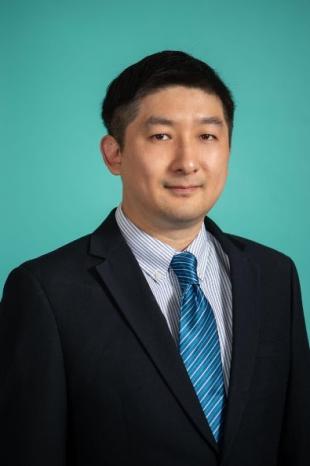Location:
Sanderson Building, LT-1
Date:
Advanced electrochemical & photoelectrochemical engineering for CO2 utilisation
Abstract
CO2 can be converted to useful fuels and chemicals by electrochemical and photoelctrochemical processes. As an effective strategy to address greenhouse effect and energy storage shortage, (photo)electrochemical reduction of CO2 still needs major improvements on its efficiency and reactivity. Reactor and process engineering as well as overall system design and integration play a significant role in achieving eco-attractive CO2 utilisation, but their importance has long been overlooked. This presentation will provide an overview on the recent progress on the electrochemical/ photoelectrochemical engineering and process for CO2 utilisation, and will introduce several CO2 utilisation routes under investigation by our research group: electrolysis + hydrogenation route; solid oxide co-electrolysis + Fischer−Tropsch synthesis route, direct formic acid electro-synthesis route, and photoelectrochemical route. The presentation will focus on how we use advanced microreactor/microfluidics, process intensification and system integration tools to optimise the CO2 utilisation performance and efficiency.
Related papers:
- Lu, et. al., High performance electrochemical CO2 reduction cells based on non-noble metal catalysts, ACS Energy Letters, 2018, 3, 2527–2532
- Lu, et. al., A high performance dual electrolyte microfluidic reactor for the utilization of CO2, Applied Energy, 2017, 194, 549-559
- Kalamaras, et. al., A microfluidic photoelectrochemical cell for solar-driven CO2 conversion into liquid fuels with CuO-based photocathodes, Faraday Discussions, 2019, in press
Bio
Dr Jin Xuan is a Senior Lecturer in Low Carbon Processes at Loughborough University. Prior to his current position, he was the Associate Director and Assistant Professor of the Research Centre for Carbon Solutions (RCCS) at Heriot-Watt University. Dr Jin Xuan has been a team leader of 10+ researchers, delivering high-impact interdisciplinary researches at the interface between electrochemistry and microfluidics that directly address the energy trilemma. He pioneered the research direction of microfluidic electrochemical engineering, especially for CO2 reduction and solar fuel production. He has published 90+ journal papers with 1300 citations & H-Index 20. He has won a number of awards, including the Scottish Energy News Researcher of the Year Award, and the Applied Energy ICAE Best Paper Award. He is PI/CI of projects worth £3M from EPSRC, Royal Society, ETP and industrial sponsors, and holds the Royal Society Kan Tong Po International Fellowship. He is a Chartered Engineer and a Fellow of the Institution of Mechanical Engineers.



